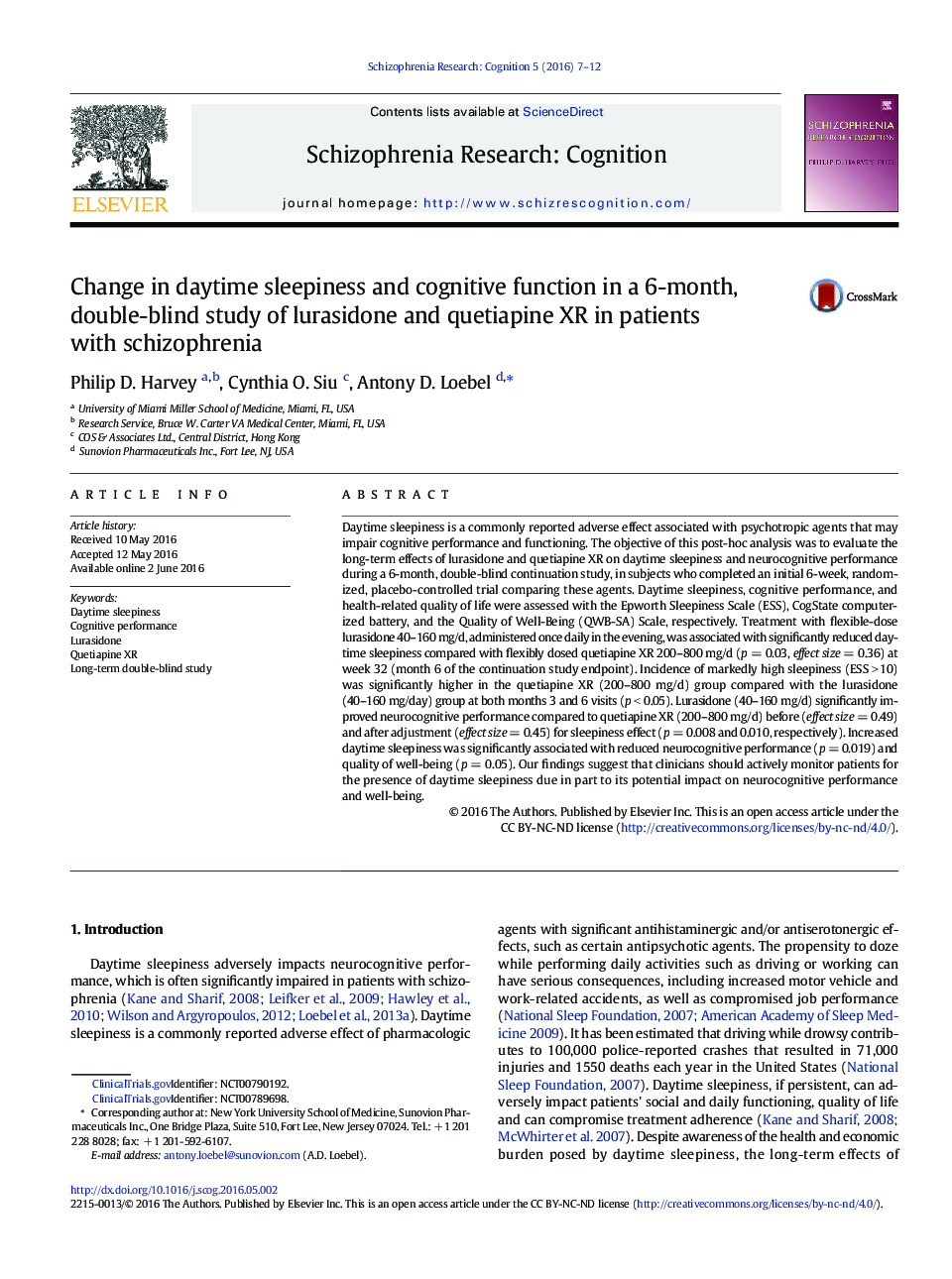| کد مقاله | کد نشریه | سال انتشار | مقاله انگلیسی | نسخه تمام متن |
|---|---|---|---|---|
| 4191712 | 1608482 | 2016 | 6 صفحه PDF | دانلود رایگان |
Daytime sleepiness is a commonly reported adverse effect associated with psychotropic agents that may impair cognitive performance and functioning. The objective of this post-hoc analysis was to evaluate the long-term effects of lurasidone and quetiapine XR on daytime sleepiness and neurocognitive performance during a 6-month, double-blind continuation study, in subjects who completed an initial 6-week, randomized, placebo-controlled trial comparing these agents. Daytime sleepiness, cognitive performance, and health-related quality of life were assessed with the Epworth Sleepiness Scale (ESS), CogState computerized battery, and the Quality of Well-Being (QWB-SA) Scale, respectively. Treatment with flexible-dose lurasidone 40–160 mg/d, administered once daily in the evening, was associated with significantly reduced daytime sleepiness compared with flexibly dosed quetiapine XR 200–800 mg/d (p = 0.03, effect size = 0.36) at week 32 (month 6 of the continuation study endpoint). Incidence of markedly high sleepiness (ESS > 10) was significantly higher in the quetiapine XR (200–800 mg/d) group compared with the lurasidone (40–160 mg/day) group at both months 3 and 6 visits (p < 0.05). Lurasidone (40–160 mg/d) significantly improved neurocognitive performance compared to quetiapine XR (200–800 mg/d) before (effect size = 0.49) and after adjustment (effect size = 0.45) for sleepiness effect (p = 0.008 and 0.010, respectively). Increased daytime sleepiness was significantly associated with reduced neurocognitive performance (p = 0.019) and quality of well-being (p = 0.05). Our findings suggest that clinicians should actively monitor patients for the presence of daytime sleepiness due in part to its potential impact on neurocognitive performance and well-being.
Journal: Schizophrenia Research: Cognition - Volume 5, September 2016, Pages 7–12
